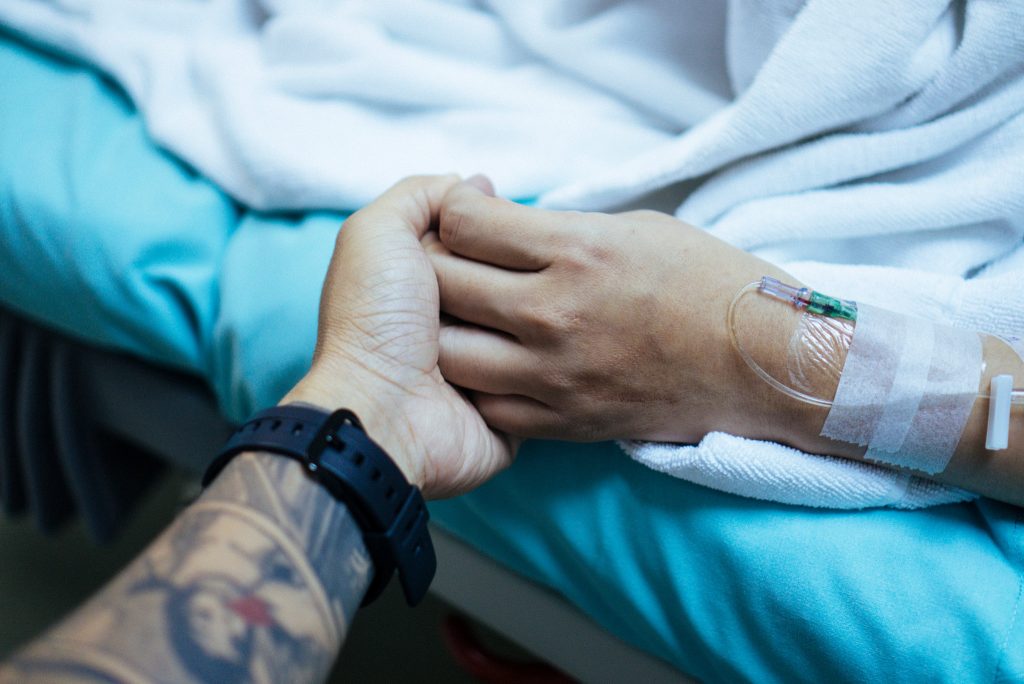
It’s always stressful when you hear that someone has gotten a diagnosis for a serious and life-threatening illness, and truth be told, everything becomes even more complex if it’s one of your loved ones who has been diagnosed with cancer. Since cancer patients are always overwhelmed – both mentally and physically – it’s important that you support them throughout their fight with the illness.
If you’re facing this situation, you might be wondering what you can do to help, but more importantly, you might be wondering how you can ease the process instead of making it more difficult. To help you understand what you’ll need to do, here is a list of approaches that you could take:
Table of Contents
1. It’s Okay to Ask Questions + Don’t Forget to Listen

Source: nytimes.com
Cancer is a dangerous and life-threatening illness, which is why you cannot possibly know how your loved one feels, what they think, what they might want to do, and you might also be confused with what you can do to make things easier for them. For instance, if you assume something, there is a possibility that you might end up making a specific situation worse instead of being there to help. Because of this, it’s important for you to remember to ask how you can help them.
But, besides asking questions that you can use as a form of guidance, if you truly want to help you should listen to what they have to say about the feelings they’re experiencing, and of course, there will be no space for judgment. After all, people that are facing a battle with cancer often don’t know what to say or how to express their feelings, and in such situations, it’ll mean a lot to them if you listen to what they’re saying.
2. Their Decisions Need to Be Respected at All Times
As a close family member, your loved one, as well as their doctors will want to hear what you have to say about, for example, different treatment methods. Even though you should provide some insight into what you’re thinking, the decision, in the end, should be made by your loved one. They’re the ones that are battling this disease and it’ll impact only their body and mind, which is why you should respect the decisions they make at all times, no matter what they revolve around.
3. Help Them Find The Information They Require

Source: cancercenter.com
As you already know, there is a wide range of treatment options for cancer and your job is to help your family member learn more about the options they have before they can make a suitable decision. Because of this, you might want to search for doctors that specialize in this specific disease and you might want to get second or even more opinions that can help your family member make a decision that will ease the entire process for them.
4. Presents Can Always Make Their Day Better
If there is one thing that you should take away from this list, it’s the fact that presents can always make your loved one’s day better. Now, you must be extra careful when choosing a present – for instance, you don’t want to get them shampoo since chemotherapy will likely cause their hair to fall out. So, to ensure that you don’t get something that could actually destroy their feelings, you can opt for gift packages such as the ones offered by cancercareparcel.com.
5. Ask if They Need Professional Emotional Support

Source: curominds.com
Trust me, your support will be everything to the loved one, however, at times, they might need a professional emotional counselor that can help them. During all the treatment stages, the side effects of the medicine can and most likely will increase the anxiety and stress that they’re feeling, which is something that can make it extremely daunting and difficult for them to control and manage all the emotions that they’re feeling.
Because of this, they might need a specialist that can help them overcome such issues. Now, you should keep in mind, you shouldn’t simply opt for a specialist and schedule a meeting, instead, you must first talk to your family member and ask them whether or not they think it’s a good idea. By doing so, you’ll make sure that they actually want to speak to someone experienced, instead of you forcing it upon them.
6. Behave Normally
One of the most common mistakes people make is that they stop acting normal around the person that is diagnosed with cancer. This is something that you shouldn’t do, no matter what the situation is, mostly because it can make things more daunting for them. So, don’t really forget to talk about normal things such as new music or movie releases or what’s happening in your life since this can make everything normal and as it once was.
7. You Must Be Patient

Source: pexels.com
No article on this topic would be complete without mentioning the fact that you must have patience. What does this mean? Well, people facing cancer often experience a wide range of issues, both physical and emotional, and losing your patience with them can result in making the entire treatment process more daunting to them, and even worse, they might start feeling like they’re a burden to you. Thus, don’t forget to be as patient as you can.
8. Never Stop Supporting Them
Last on our list, but definitely, an important thing to mention is that you should never stop supporting your loved one. For starters, cancer is a recurring illness, which is why they still might require frequent consultations with their physicians just so that they can ensure that cancer hasn’t returned. This can be extremely stressful – which can cause the cancerous cells to regrow – thus, providing support is a must.
Conclusion
No matter if your mother, father, sibling, partner, or child got diagnosed with cancer, providing them with emotional support as they go through the treatment process is the most important thing you can do. And, by following the advice we’ve mentioned above, you can make sure that you’re doing everything in your power to help them, instead of making things more difficult for them.
Since you’ve now learned what you should do, you really shouldn’t spend time reading articles similar to ours. Instead, go through the list we’ve created above one more time, determine which approaches might be suitable for you, and from there, provide all the emotional support your loved one needs in the most difficult period of their life.







